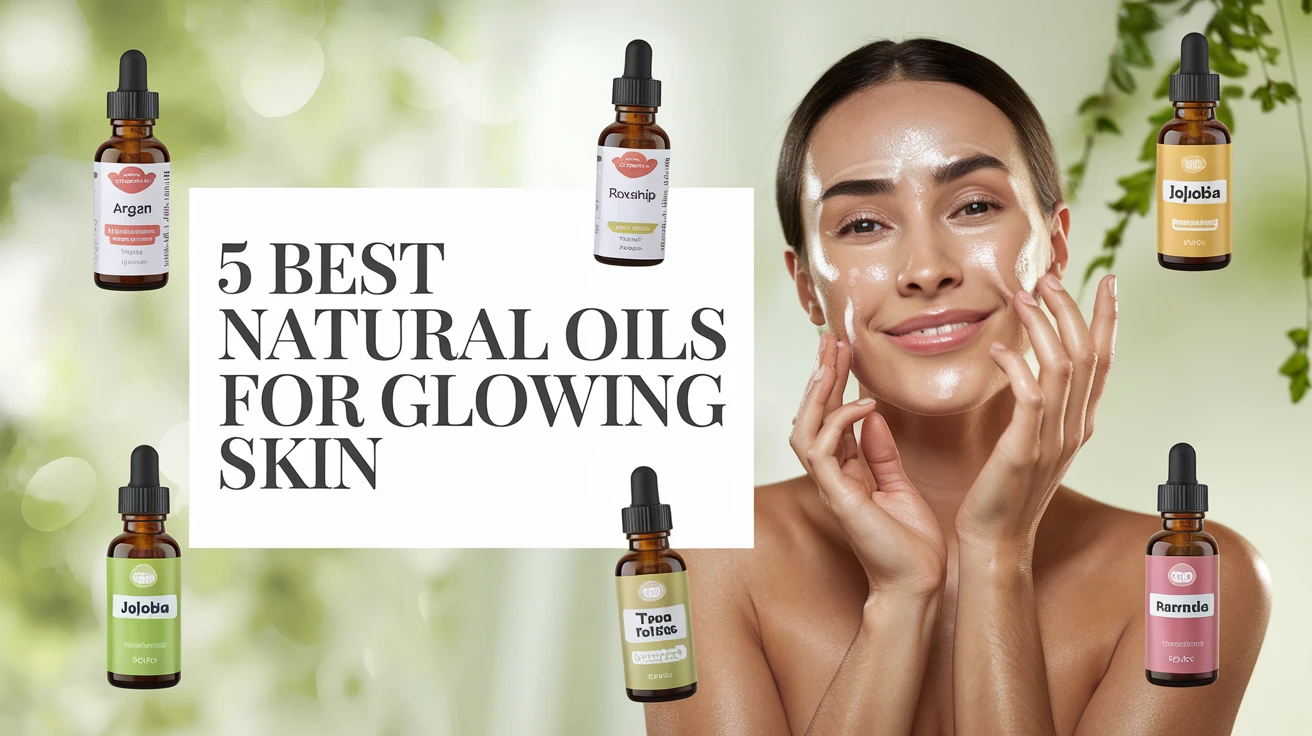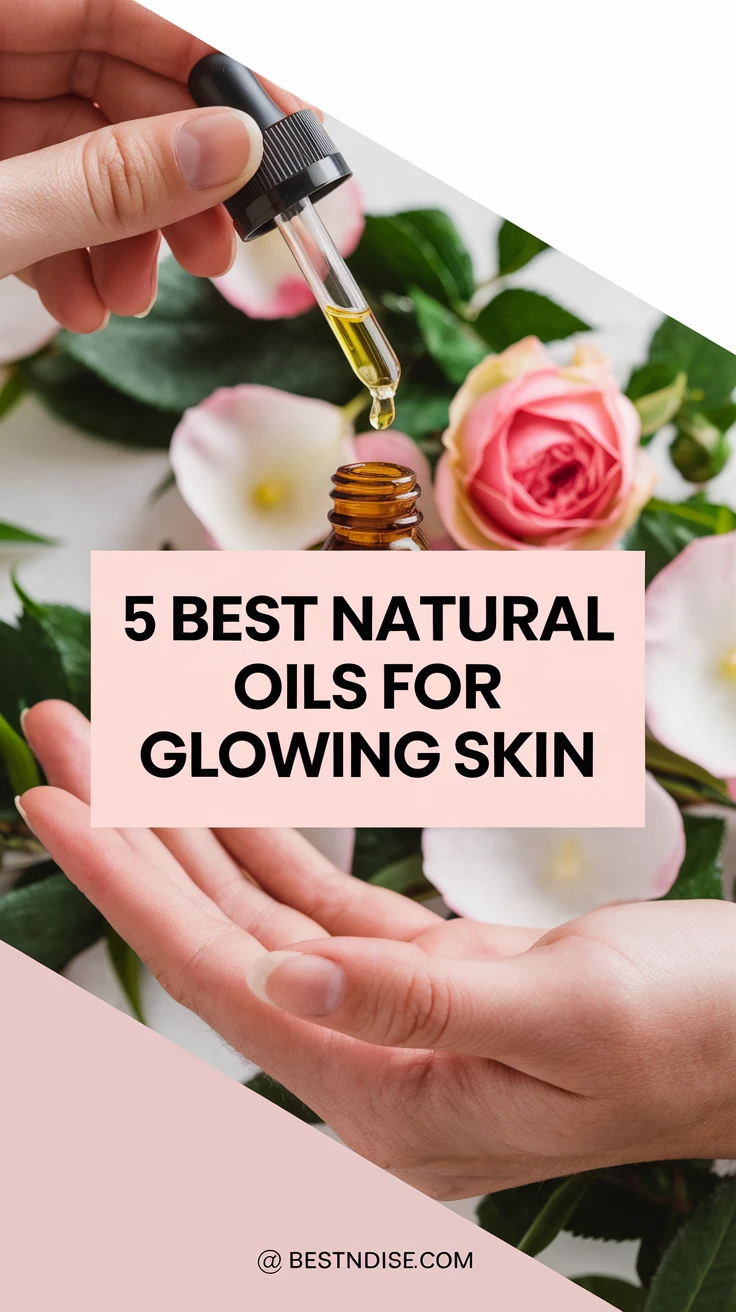
Have you ever wondered why some people seem to have that enviable, natural glow while your skin feels dull and lackluster? As someone who struggled with combination skin for years, I discovered that the secret often lies in nature’s own medicine cabinet: natural oils. Before you scroll away thinking, “But oils will make my skin greasy!” let me share a game-changing revelation that transformed my skincare routine. Natural oils, when chosen correctly and applied properly, can be the missing link to achieving that coveted dewy, radiant complexion you’ve been dreaming of.
Why Natural Oils Are Your Skin’s Best Friend
Natural oils have been used for centuries in skincare routines across different cultures. Their effectiveness lies in their molecular structure and rich composition of vitamins, minerals, and fatty acids that closely resemble our skin’s natural oils. This similarity allows them to penetrate deeply, providing nourishment where it’s needed most.
Here’s what makes natural oils so special:
- They contain antioxidants that fight free radical damage
- Most natural oils have anti-inflammatory properties
- They help balance your skin’s natural oil production
- Many contain vitamins A, C, and E for skin repair
- They create a protective barrier without clogging pores
The Top 5 Natural Oils for Glowing Skin
1. Argan Oil: The Liquid Gold for Your Face
Often called “liquid gold,” argan oil earned its reputation through its exceptional moisturizing and anti-aging properties. When I first tried argan oil, I was amazed at how quickly it absorbed into my skin without leaving any greasy residue.
| Benefit | How It Works |
|---|---|
| Anti-aging | Rich in vitamin E and fatty acids |
| Moisture balance | Regulates natural oil production |
| Skin protection | Contains powerful antioxidants |
2. Rosehip Oil: Nature’s Retinol Alternative
My personal favorite, rosehip oil, is packed with vitamin A (natural retinol) and vitamin C. It’s particularly effective for addressing hyperpigmentation and fine lines.
| Component | Skin Benefit |
|---|---|
| Vitamin A | Cell turnover and regeneration |
| Vitamin C | Brightening and collagen production |
| Essential fatty acids | Deep hydration and repair |
3. Jojoba Oil: The Perfect Balance
Jojoba oil’s molecular structure closely resembles our skin’s natural sebum, making it an excellent choice for all skin types, even oily and acne-prone skin.
4. Tea Tree Oil: Clear Skin Solution
While technically an essential oil, tea tree oil deserves a spot on this list for its powerful antibacterial and anti-inflammatory properties. Remember to always dilute it with a carrier oil!
5. Marula Oil: Ancient Beauty Secret
This lightweight yet deeply nourishing oil has been used for generations in African skincare rituals. It’s particularly beneficial for sensitive and mature skin types.
How to Apply Facial Oils for Maximum Benefits
The application technique can make or break your experience with facial oils. Here’s my tried-and-tested method:
- Start with clean, slightly damp skin
- Use only 2-3 drops for your entire face
- Warm the oil between your palms first
- Press gently into the skin rather than rubbing
- Apply from the center of your face outward
Best Times to Apply:
| Time of Day | Recommended Oil | Benefits |
|---|---|---|
| Morning | Jojoba or Marula | Light protection and glow |
| Evening | Argan or Rosehip | Deep repair and regeneration |
| Spot Treatment | Tea Tree (diluted) | Target specific concerns |
Common Mistakes to Avoid
Through my journey with facial oils, I’ve learned some valuable lessons about what not to do:
- Using too much product (less is more!)
- Applying to dry skin
- Not patch testing new oils
- Mixing too many oils at once
- Storing oils improperly (keep them away from direct sunlight)
Conclusion
The journey to glowing skin doesn’t have to be complicated or expensive. Natural oils offer a simple, effective solution that has stood the test of time. Start with one oil that matches your skin’s needs, and gradually experiment to find your perfect combination. Remember, consistency is key, and your skin will thank you with that natural, healthy glow you’ve been seeking.
Key Takeaways
- Natural oils can benefit all skin types when chosen and applied correctly
- Less is more when it comes to facial oils – start with 2-3 drops
- Always patch test new oils and store them properly to maintain their benefits
Frequently Asked Questions
Won’t facial oils make my skin more oily?
Not necessarily. Quality facial oils can actually help balance your skin’s natural oil production. When your skin is properly moisturized, it doesn’t need to produce excess oil.
Can I use multiple oils at once?
While it’s possible to combine oils, it’s best to start with one oil and understand how your skin reacts before introducing others. You can mix different oils for different concerns, but keep it simple.
How long does it take to see results?
Most people notice immediate improvements in skin hydration, but for more significant results like reduced fine lines or hyperpigmentation, allow 4-6 weeks of consistent use.
Can I use facial oils if I have acne-prone skin?
Yes! Oils like jojoba and tea tree can actually help manage acne by balancing oil production and fighting bacteria. Just ensure you’re using non-comedogenic oils.
Should I apply oil before or after moisturizer?
Generally, apply oils after water-based products but before or instead of cream moisturizers. Oils can help seal in the benefits of other products.
How should I store my facial oils?
Store oils in a cool, dark place away from direct sunlight. Many oils come in dark glass bottles to protect their properties. Properly stored oils can last 6-12 months.
Can I use facial oils during the day?
Yes, but use lighter oils like jojoba or marula for daytime. Always apply sunscreen after your oil has absorbed if using during the day.
Are expensive oils better than affordable ones?
Not necessarily. The quality of the oil matters more than the price tag. Look for pure, cold-pressed oils from reputable sources.
How can I tell if an oil has gone bad?
If the oil smells rancid, has changed color significantly, or has a different texture than when you bought it, it’s probably time to replace it.
Can I mix oils with my foundation?
Yes! Adding a drop of facial oil to your foundation can create a beautiful, dewy finish. Just make sure to mix a small amount at a time for best results.


